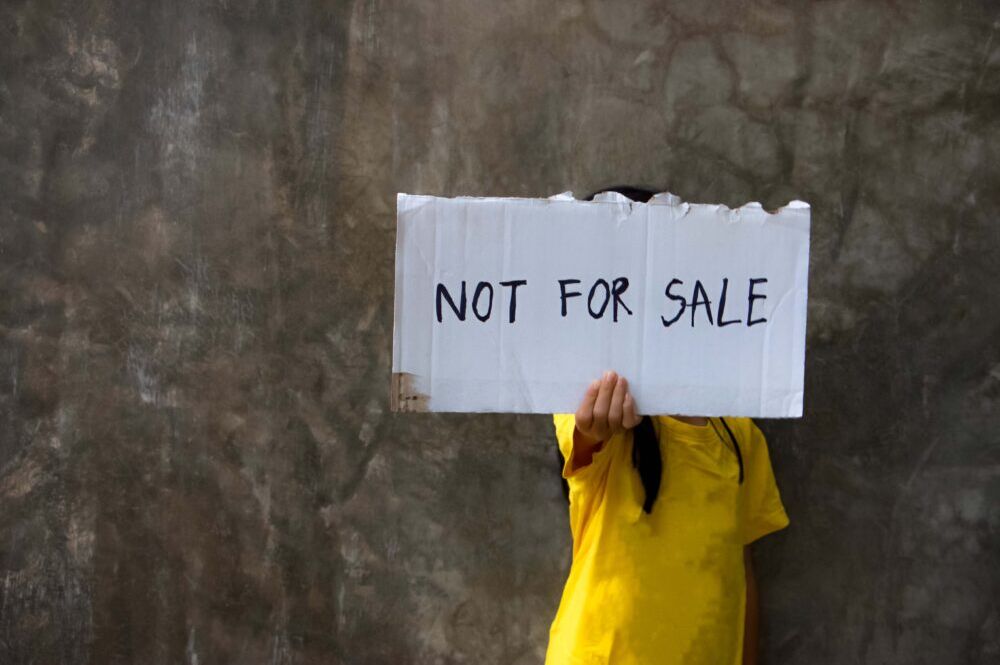Nationality and Borders Bill: Firm but Not Fair.

The UK Government has said that it’s new plan for Immigration which is now largely included in its Nationality and Borders Bill is ‘firm, but fair’.
Having given the Bill very careful scrutiny and especially the clauses which relate to modern slavery, I have to conclude that the Bill might be firm, but it’s definitely not fair.
Consider the following.
It’s not fair to merge consideration of a person’s immigration status with their status as a victim of modern slavery. As a point of principle, deciding whether a person is a modern slavery victim should happen separately to deciding on their immigration status.
It’s not fair that no Impact Assessment has accompanied this Bill so there is no indication of the Government’s assessment on how the proposed changes will impact modern slavery victims.
It’s not fair to suggest a person must have arrived legally to claim asylum. Often, victims of modern slavery have been brought to the UK either forcibly without their consent or without their full understanding, and they may have been supplied with false paperwork. This Bill goes against everything we know about modern slavery and the way in which human trafficking works.
It’s not fair to place the onus on victims to disclose all of their abuse from the outset- with the suggestion that failure to do so risks their credibility being damaged. Victims of modern slavery experience extreme trauma and abuse at the hands of their traffickers and often find it very difficult to talk about their exploitation in the immediate aftermath. It’s not fair to place a time limit on disclosing this. It takes time for victims to feel safe enough to talk about their experience.
It’s not fair to make changes to how a determination is made about whether someone is a genuine modern slavery victim which are unclear and, as yet not even detailed in the Bill. This could see genuine victims missing out on much needed help.
It’s not fair that the Bill defines the Recovery period for all victims as 30 days which is shorter than currently available. For victims who are experiencing support post-30 days but before the current 45-day offer is up, this change will create huge uncertainty.
It's not fair that the Bill will provide statutory support for ‘potential’ victims in England and Wales but not ‘confirmed’ victims.
It’s not fair to make changes to the current discretionary leave to remain criteria which will make it stricter and narrower when we know full well that the needs of modern slavery victims are very complex. We need legislation that puts the needs and interests of modern slavery victims first. When you focus support primarily through the lens of what victims most need, you will enact legislation that is fair.
Let’s give victims more support, not less
Behind the statistics of modern slavery here in the UK and across the world we must never forget there are real human beings. Very often, they’ve been relocated, sometimes by force across borders and against their will. They have suffered terribly at the hands of human traffickers. If they are to rebuild their lives, the support needs to be generous, long-term, and committed.
That’s why CARE’s been supporting Lord McColl and his Modern Slavery (Victim Support) Bill. If passed, this Bill would guarantee confirmed victims of modern slavery in England and Wales at least 12 months support.
In turn, this would increase the chances that a victim would be willing to give evidence in court which should help increase the prosecution levels against the traffickers. Long-term support includes advice, housing, leave to remain, financial and legal aid and above all, the security of knowing we will not abandon them. Six years ago, Westminster passed the Modern Slavery Act which was a genuine step forward in the fight against modern slavery.
But the changes the UK Government is proposing via its Nationality and Borders Bill risk undermining the genuine needs and interests of victims. In the coming weeks, MPs will have the chance to vote on amendments to improve the legislation and make sure victims are properly supported.
When the time comes, I hope you’ll join us and make your voice heard by engaging with your MP. Keep an eye on CARE’s website and our social media feeds as well for the next steps.






